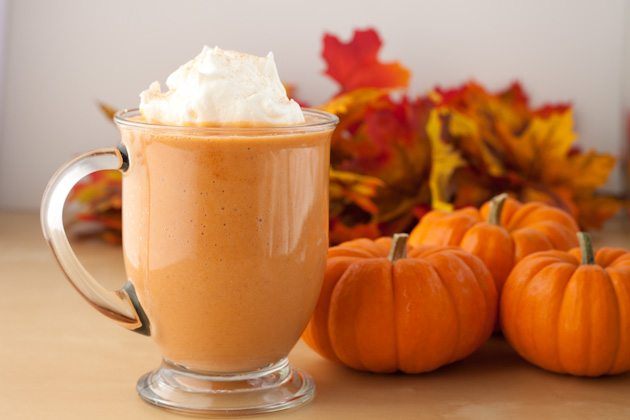Are you tired of swallowing pills to get your daily dose of supplements? For most of the part, supplements are consumed straight or blended into shakes or smoothies. But after a while, shakes get old, and the weird aftertaste becomes hard to get past. After all, there’s only so much you can do to make different fruit smoothies and chocolate shakes.
Fortunately, some supplements have surprisingly diverse uses. You can cook or bake with the following dietary additives, making them easy to incorporate into your favorite meals, snacks, and beverages.
1. MCT Oil
Medium-chain triglyceride (MCT) oil contains healthy fats that may help with weight loss, provide quick energy, reduce lactate build up during exercise, and promote a healthy gut microbiome. This tasteless, odorless liquid won’t change the consistency of your food or drinks. You can drizzle it on top of meals, bake with it, and even cook with it—just keep in mind that it has a smoking point of 320 degrees Fahrenheit.
2. Collagen Powder
Hydrolyzed collagen comes in powder form and dissolves in both hot and cold liquids. This property makes it a simple supplement to use for cooking and baking. Unlike gelatin, another supplement that contains the same protein, collagen powder won’t change the consistency of what you mix it with. Increasing your collagen intake and supporting your body’s natural collagen production can help strengthen bones and joints, keep your skin healthy and supple, and assist with muscle building.
3. Whey Protein Powder
Many athletes drink whey protein powder shakes before workouts and don’t realize that the supplement has a wider range of uses. Baking with this protein help can help satisfy your cravings without having to resort to unhealthy alternatives. However, if you add whey powder into your recipe, you need to ensure you balance it out with wet ingredients, or the final product will come out dry.
4.”Superfood” Spices
Adding a little more spice to your everyday meals can not only please your tastebuds but improve your health. Many of the spices in your pantry are fantastic sources of antioxidants that protect cells from free radicals. A few spices worth incorporating into more foods and drinks include:
- Turmeric– Turmeric contains curcumin, a powerful antioxidant that fights inflammation. The spice can also help reduce your risk of heart disease and has shown promise for helping treat depression. You can add more of this powerhouse spice to your diet by rubbing it on roasted vegetables or meats, sprinkling it on tacos, or using it in a delicious Indian curry.
- Cinnamon– A popular spice, cinnamon comes from the bark of the cinnamon tree. It gives a sweet taste to food without adding sugar, and studies show that it may help lower blood sugar and fight both bacterial and fungal infections.
- Ginger– A tropical plant commonly used in Asian dishes, ginger treats diarrhea, stomach upset, nausea, and motion sickness. Ginger can be purchased as a dried powder and used in teas. You can also chop up some fresh ginger and add it to stir-fry dishes, mix it in homemade salads, or serve it on the side with sushi.
5. Spirulina
Spirulina is loaded with nutrients and antioxidants that can benefit both your brain and body. It is generally consumed in the powder form or as a supplement. But drinking spirulina in plain water can leave a strange taste in your mouth, so many people prefer to add it to their meals.
6. Probiotics
Probiotics are living microorganisms that aid food digestion, produce vitamins, and destroy disease-causing cells. While probiotics supplements are available in the market, certain foods are naturally rich in probiotics like kefir, yogurt, kimchi, fermented pickles, miso, and kombucha.
Cooking with probiotics can be a bit misleading because heating them kills helpful bacteria. But that doesn’t mean you can’t cook with probiotic-rich foods. You just have to be thoughtful when adding probiotics to any dish. For instance, you can add miso to a soup or kimchi into fried rice.
7. Nutritional Yeast
Nutritional yeast gets its name from its vitamin, mineral, protein, and antioxidant content. A popular ingredient used in vegan cooking, nutritional yeast is known for its cheese-like flavor.
Studies prove that nutritional yeast offers a wide array of potential health benefits ranging from preventing free radical formation to lowering cholesterol. The various ways to include nutritional yeast into your diet include sprinkling it over popcorn or pasta, stirring it into soups, and using it as a thickener in sauces.
8. Fenugreek and Fenugreek Powder
Fenugreek has grown in popularity as a household spice because of its diverse benefits. The herb and its seeds can help with appetite control, controlling cholesterol levels, treating heartburn, controlling blood sugar, and helping breastfeeding mothers with milk production.
Fenugreek seeds and powder offer a slightly nutty and sweet taste. To include it into your diet, you can eat it as a sprout, rub it on meat, or grind it into a paste and add it to curry.
9. Fiber Powder
Fiber powder offers short-term relief from bowel irregularity and constipation. People also use the supplement to assist with weight loss, as it can help you feel fuller longer. The quick and easy way to use fiber powder in cooking is by adding it to baked goods. It acts as a thickening agent and gives volume to baked products, especially those that are gluten-free.
10. Gelatin
Gelatin is a protein product derived from collagen and is a powerhouse of amino acids. Its various benefits range from improving joint health and brain function to improving skin and hair appearance. Gelatin is available in sheet, powder, or granule form. To consume it, you can stir it into hot food or liquids like stews, gravies, and broths. Keep in mind that gelatin powder, unlike collagen powder, alters liquids’ consistency, making them like “jelly” or gelatinous.
Creativity in the Kitchen
If you have trouble swallowing pills or don’t like the taste and consistency of powdered supplements, there are creative ways to bury or dissolve powders in delicious dishes. If you aren’t afraid to experiment, you’ll find countless ways to add more vitamins and minerals to your meals with the help of supplements.







